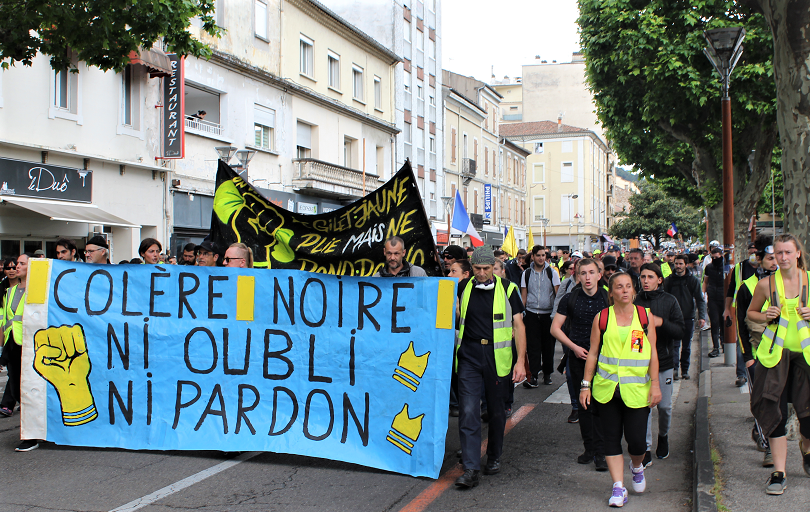
“We are seeing the dehumanisation of the profession”, a striking French postal worker told me this week.
Yolaine, who has been in the job for 20 years, was one of 50 strikers bringing their message to the public at a local village market in the Cévennes.
They set up a stall and locals flocked to sign a petition supporting their cause.
The posties’ revolt is against a fundamental change in the nature of the French post office, La Poste, to the detriment of both public and staff.
“It just isn’t the same job that it was ten or even five years ago”, said Yolaine. “It is all about profitablity. They couldn’t care less about the human level”.
Said colleague Damien: “Our main customer is not individuals or local businesses any more, it’s Amazon. At least half the parcels we deliver come from Amazon”.
Another striker, Marie-Pierre, added: “It’s not at all human any more. It’s profitablity at any cost and no public service”.
The main issues are changes to working practices, including longer working days, the erosion of staffing levels and the closure of local post offices.
But the strikers are also offended that their job is being transformed, by what the union press release calls “the logic of capitalist profitabilty”, from a public service into a money-making exercise.

Adverts on French TV show postal workers visiting vulnerable people, providing a lifeline to the outside world.
This used to be a free service, just part of the daily rounds, but now people have to pay for it.
And for their money they only get a six-minute visit, leaving time for little more than a “bonjour” and an “au revoir”.
Not only do the under-pressure posties not have time to stop and chat to people now, but they can also get in trouble for doing so.
The postal workers are disgusted by this cynical move on the part of their bosses. Yolaine said if people wanted a daily visit, the price was “exorbitant”.
Damien added: “They are commercialising social connection. They want to sell it.”
The strikers are not part of the Gilets Jaunes movement, but they are very much coming from the same place.

What we are seeing everywhere in France at the moment is a rejection of the unhealthy direction in which society as a whole is moving.
The drift towards commercialisation has been accelerated under Macron, a hardline neoliberal enforcer, but it has been happening for a while now.
The social fabric is being deliberately ripped apart so that people are forced to buy everything they need in life from a very small and increasingly wealthy elite.

I have been thinking a lot recently about the analysis of the sociologist Ferdinand Tönnies, which forms an important part of the organic radical philosophy.
And I have come to the conclusion that the Yellow Vests in France, as well as the strikers I spoke to, are essentially resisting the latest shift away from what Tönnies called Gemeinschaft (community) towards Gesellschaft (society).
Gemeinschaft is all about horizontality, participation, the grassroots, mutual aid, sharing, solidarity, co-operation, authenticity, freedom.
Gesellschaft is all about hierarchy, money, profit, centralisation, commercialisation, selfish individualism, artifice and enslavement.
The left has generally failed to take up Tonnies’ ideas. Gemeinschaft does not appeal to a movement which has historically been very suspicious of anything considered “nostalgic” or “reactionary”.
It prefers instead to promote a centralised and dehumanised “progress” which takes us deeper and deeper into Gesellschaft hell.
We so badly need a new revolutionary movement which throws out for ever all the narrow technocratic dogma of the sterile industrial left and is inspired instead by humanity’s deepest untamed desires for community, nature, freedom and life.

Leave a Reply